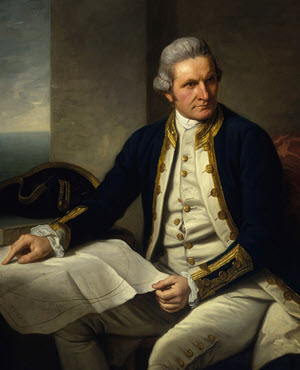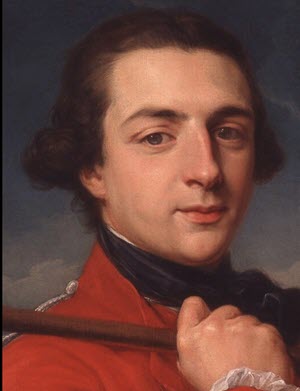| |
Date |
Event(s) |
| 1 | 1760 | - 25 Oct 1760—29 Jan 1820: King George III's reign

George III was the third British monarch of the House of Hanover, but unlike his two predecessors, he was born in Great Britain, spoke English as his first language, and never visited Hanover. His reign was marked by a series of military conflicts involving his kingdoms, much of the rest of Europe, and places farther afield. Early in his reign, Great Britain defeated France in the Seven Years' War, becoming the dominant European power in North America and India. However, many of Britain's American colonies were soon lost in the American War of Independence. Further wars against revolutionary and Napoleonic France from 1793 concluded in the defeat of Napoleon at the Battle of Waterloo in 1815.
Later in life, George III had recurrent mental illness. After a final relapse in 1810, a regency was established, and George III's eldest son, George, Prince of Wales, ruled as Prince Regent.
|
| 2 | 1766 | - 30 Jul 1766—14 Oct 1768: Earl of Chatham - 10th British Prime Minister

William Pitt, 1st Earl of Chatham, (15 November 1708 – 11 May 1778) was a British statesman of the Whig group who led the government of Great Britain twice in the middle of the 18th century. Historians call him Pitt of Chatham, or William Pitt the Elder, to distinguish him from his son, William Pitt the Younger, who also was a prime minister. Pitt was also known as The Great Commoner, because of his long-standing refusal to accept a title until 1766.
Pitt is best known as the wartime political leader of Britain in the Seven Years' War, especially for his single-minded devotion to victory over France, a victory which ultimately solidified Britain's dominance over world affairs. He is also known for his popular appeal, his opposition to corruption in government, his support for the colonial position in the run-up to the American War of Independence, his advocacy of British greatness, expansionism and colonialism, and his antagonism toward Britain's chief enemies and rivals for colonial power, Spain and France.
|
| 3 | 1768 | - 1768: Captain James Cook leads his first expedition to the Pacific

James Cook led an expedition on HMS 'Endeavour' to observe the transit of Venus from Tahiti. The voyage continued into the South Pacific, where Cook circumnavigated New Zealand and charted the east coast of Australia. His team of botanists & scientists brought back many important specimens & much scientific information. Cook made 2 further Pacific voyages and was killed on the 2nd of these.
- 14 Oct 1768—28 Jan 1770: Duke of Grafton - 11th British Prime Minister

Augustus Henry FitzRoy, 3rd Duke of Grafton, (28 September 1735 – 14 March 1811), styled Earl of Euston between 1747 and 1757, was a British Whig statesman of the Georgian era. He is one of a handful of dukes who have served as Prime Minister.
He became Prime Minister in 1768 at the age of 33, leading the supporters of William Pitt, and was the youngest person to have held the office until the appointment of William Pitt the Younger 15 years later. However, he struggled to demonstrate an ability to counter increasing challenges to Britain's global dominance following the nation's victory in the Seven Years' War. He was widely attacked for allowing France to annex Corsica, and stepped down in 1770, handing over power to Lord North.
|


